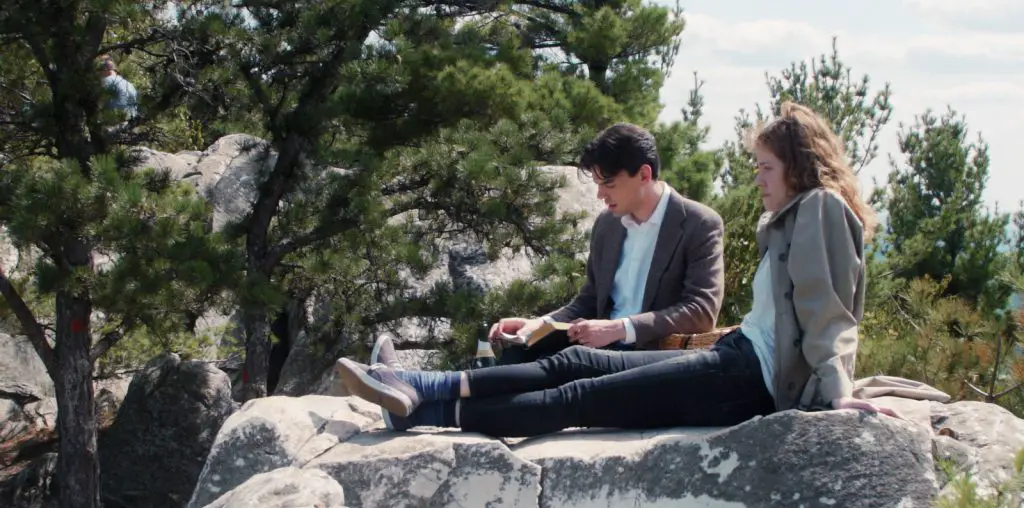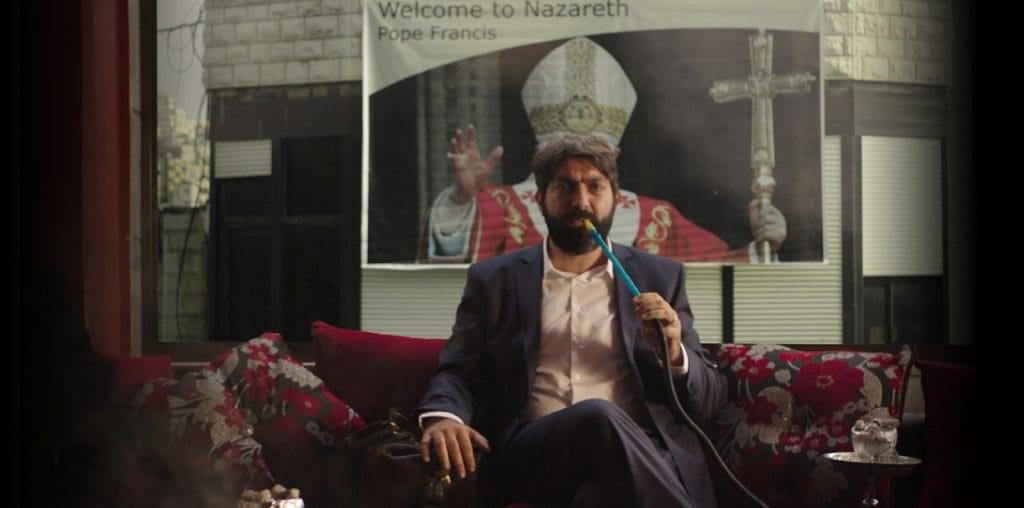
 His name is probably not familiar to you, but if you are a Voodoo Rhythm Records junkie like myself, you know the Germany-based M.A. Littler as the man who did the documentary “”Voodoo Rhythm: The Gospel of Primitive Rock “˜N’ Roll” (now available on DVD). Voodoo Rhythm Records is such a niche label in this country that I had to find out more about the man who made the film. I went into the interview assuming he was a fiend for the music, again much like myself. I was not disappointed.
His name is probably not familiar to you, but if you are a Voodoo Rhythm Records junkie like myself, you know the Germany-based M.A. Littler as the man who did the documentary “”Voodoo Rhythm: The Gospel of Primitive Rock “˜N’ Roll” (now available on DVD). Voodoo Rhythm Records is such a niche label in this country that I had to find out more about the man who made the film. I went into the interview assuming he was a fiend for the music, again much like myself. I was not disappointed.
The very first thing I asked the filmmaker was what inspired him to make his movie. After all, the label isn’t Island Records or even Epitaph. Not nearly enough people have heard of it.
“”I went to my local club in Frankfurt and heard the “˜Day of the Dead’ album by the Dead Brothers,” Littler says of the Voodoo Rhythm Records band. “”That album immediately struck a chord with me. Those guys did whatever they wanted; they blended old time blues, punk, Cajun, gypsy music and funeral tunes. I had just done a film about the biker scene in Florida, and I needed something totally different, so the idea of making a film about the Dead Brothers began to grow inside my head like a tumor.” Like a lot of tumors, things quickly grew out of control.
“”While researching the band I discovered their record label Voodoo Rhythm,” Littler continues. “”I was impressed that the label, just like the band, didn’t stick to any musical formula.
The label itself puts out all these musical styles that on paper don’t fit — blues, punk, scum country, Cajun, Zydeco, garage, etc.. I also came across a picture of this crazed primitive rock “˜n’ roll preacher. As it turned out it was a picture of Reverend Beat-Man [the guru behind the label]. The next thing, I called him up thinking I had to convince him that I was legit and I told him about everything I had done. He didn’t give a s**t, he just said come on down . . . so I did. I like to say: “˜I got voodooed!'”
The bands Littler interviewed for his film seemed to have none of the usual pretensions that come with many bands that are doing things outside the norm. I wondered if this was actually the case (or the product of generous editing) and wanted to know how these folks reacted to being interviewed.
“”I was worried about them being self conscious or skeptical,” Littler admits, “”especially since [we] had never met. I decided to have a few drinks prior to every interview, and we soon realized that we were kindred spirits. So common interests and the holy spirit broke down any potential barriers. The bands are all down to earth folk; there’s absolutely no pretension there whatsoever. I’m often asked what Beat-Man is like off stage, and my answer is simple: He’s a primitive in the most positive sense of the word. He’s a rooted man, rooted in his community and family “¦ perhaps with a slightly compulsive taste for chicken and crazed out primitive rock “˜n’ roll. He’s a diamond in the rough.”
When I reviewed the film, I commented that the downside of the movie was that it would isolate anyone who wasn’t into the music being covered. It’s so stylized that today’s ears, which have been feasting on bubblegum pop for far too long, might not appreciate the honesty and originality that these bands offer. Littler disagreed with my assessment and let me know it.
“”The film is not merely about music. It’s the portrait of a way of life that stands in contrast to an over-processed culture in which music and most lives have become standardized. The bands on the label are outlaws; they don’t need record deals and fancy advertising. They need to scream, cry, holler and rage, and they don’t give a s**t what’s hip and what’s not. They do things their way, and I think that transgresses all musical tastes. The film was really successful in Europe, and it was mostly middle aged folks that came to me and said, “˜How the hell are we supposed to go back to work in the morning after seeing this film?’ They started to question their middle of the road existence. Most of these people had no idea about primitive rock “˜n’ roll and yet the reacted to the characters in the film.”
That point is well taken, so I asked if he thought more bands of the type seen on Voodoo would be popping up based on the success of the film. After all, imitation is rampant in the music world, and anything that seems even remotely viable gets cloned.
“”I see bands riding the VR wave,” Littler admits, “”but you gotta feel it. It’s gotta be real and not following a hype. Beat-Man turns down a lot of bands that on paper fit the VR profile. If he doesn’t see that it’s heartfelt and the genuine article, he’ll pass on them. It’s all about integrity.”
Integrity is important to any and all art. So is innovation and creation. Littler isn’t resting on his laurels, either. In fact, the Dead Brothers documentary, the idea of which led to the Voodoo Rhythm documentary, is currently in theatres. And there’s more where that came from.
“”A documentary about the photographer, filmmaker and crime novelist Miron Zownir will be out in January,” Littler tells me. “”He’s a fascinating and volatile character. He documents outlaws, misfits and other creatures that live on the outer fringes of our civilization. The big one next year will be “”The Road to Nod,” a film noir style road movie, which we shot in September. That ought to hit cinemas around April 2007. We also make a lot of music videos. Check out www.slowboatfilms.com to keep updated. I visit the site myself to remind me what I’m about to do next.”
One thing is certain: If Littler puts the kind of love into his other films that he put into the Voodoo Rhythm documentary, they will all be worth watching. I know I’ll be looking for the Miron Zownir film. In fact, I’ll be looking at all the films Littler makes in his life. Anyone who’s done the work he has in order to expose the world to Voodoo deserves my undying attention and respect. Now get to your altars and pay your dues. Littler’s got a little magic waiting for you.


Just saw “The Road to Nod” at the SF Indie Fest – it was gorgeous and the music was great.